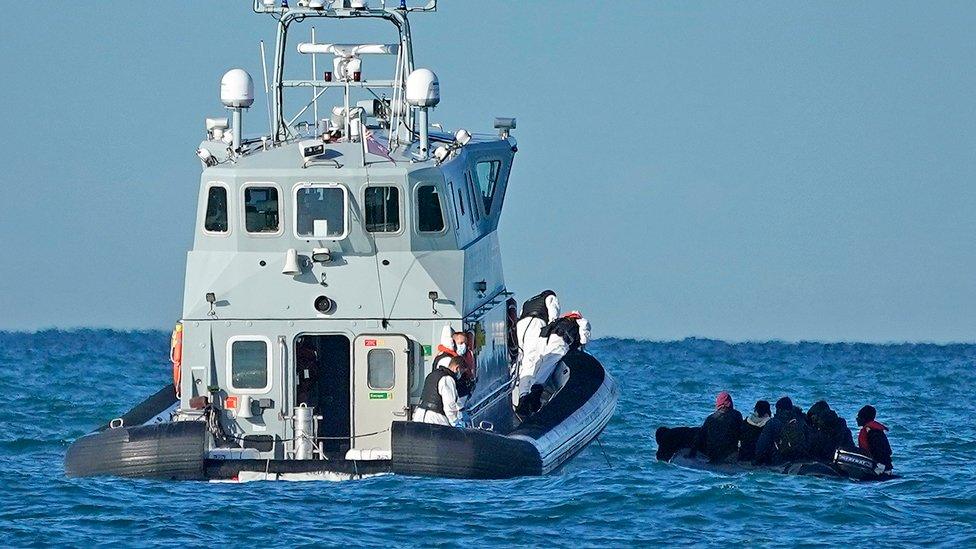Safeguarding risks for 600 unaccompanied asylum-seeking children
- Published
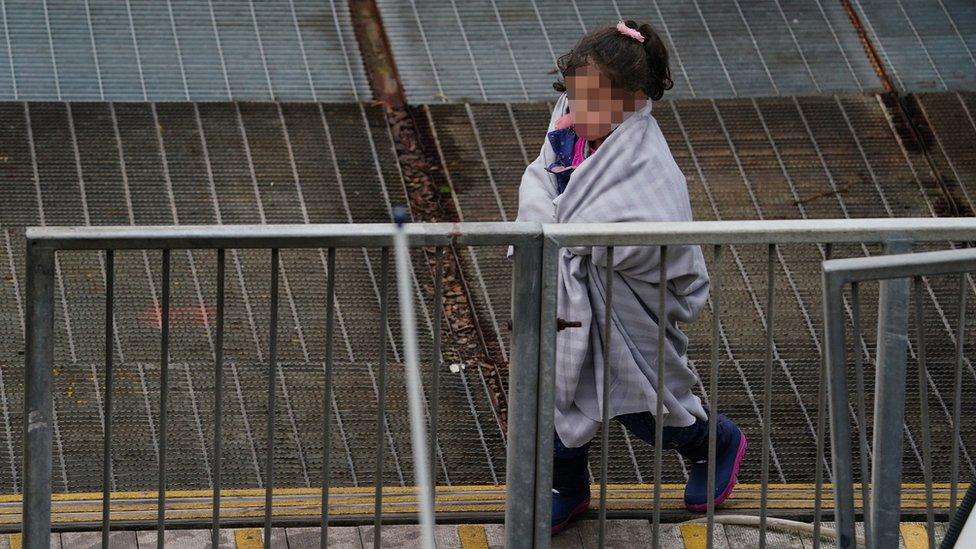
Unaccompanied asylum-seeking children make up 10-15% of all Channel migrants, Kent County Council's leader said
More than 600 asylum-seeking children, some younger than 10, were housed in hotels this year despite "safeguarding risks", the BBC has found.
The Home Office has been using hotels in Hove and Hythe for the unaccompanied children awaiting permanent placement, as two centres in Kent are full.
In emails Ofsted told the Department for Education (DfE) there were "unacceptable safeguarding risks".
The information was acquired by a BBC Freedom of Information (FoI) request.
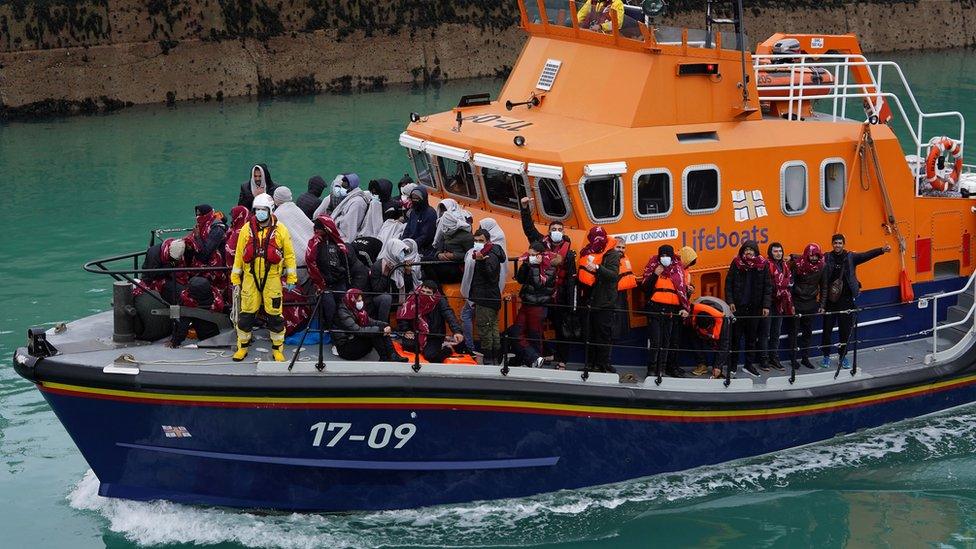
Thursday saw a record number of migrants make the crossing in a single day
Some of the children in these hotels have gone missing, the FoI revealed.
Labour MP for Hove Peter Kyle said there "is very little safeguarding around these children", in part because their legal status is "confused".
Ofsted previously said the hotel accommodation was "unacceptable", but new safety concerns emerged in email correspondence, with Ofsted questioning who is responsible for a child were they to be harmed or need an operation.
Yvette Stanley, a national director at Ofsted also said the hotel practice "risks establishing yet more unlawful unregistered children's homes".
It is illegal under the Care Standards Act 2000 for authorities to provide a child with care if their accommodation is not registered with Ofsted as a children's home.
The hotels the Home Office is using are unregistered, but it has argued that although the hotels are attended by social workers and nurses, it has not broken the law because it was "not providing care as defined by" the act.
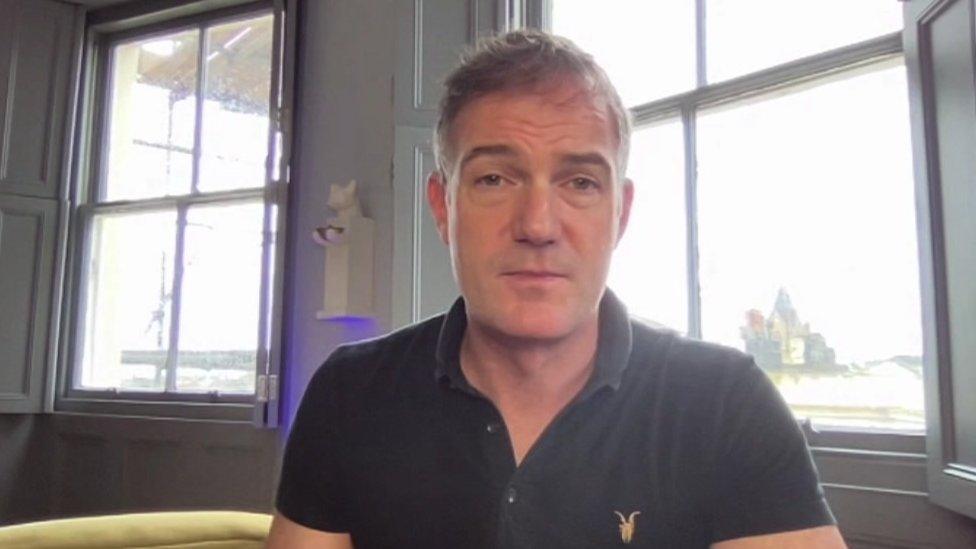
Hove MP Peter Kyle said the level of care at the hotels was not good enough
Mr Kyle visited the Hove hotel and accused the Home Office of not providing appropriate care.
Some of the children had been through "extreme trauma and need far more emotional support", he said.
He also said they were "subject to predators" who wish to exploit them, and hotel security was "not strong".
"We know many of these youngsters will be involved in some kind of trafficking arrangement, so when the location of these hotels becomes known, it is very likely those traffickers will seek them out", he added.
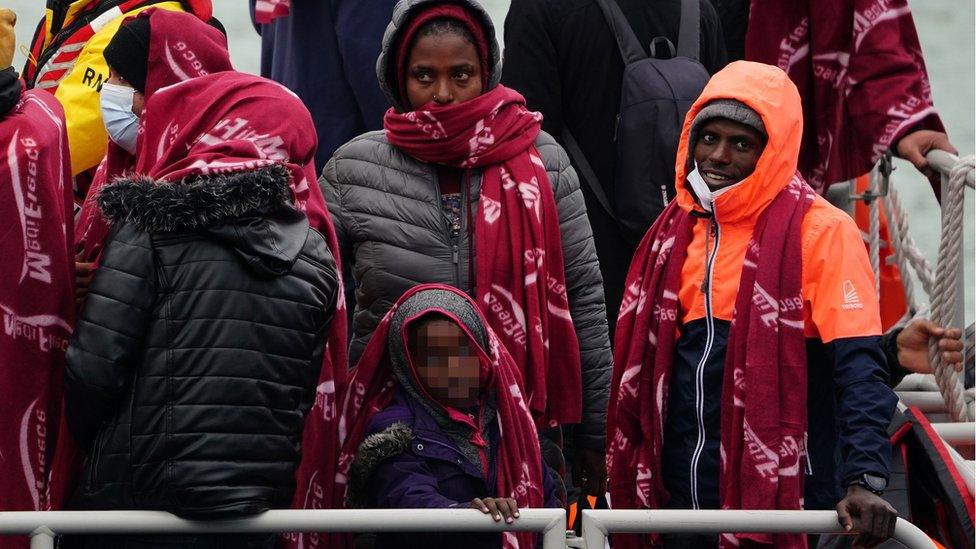
A group of people, including children, arrive in Dover after being rescued by lifeboat
Children have also gone missing from these hotels, the FoI revealed. The Home Office would not confirm a number but said it was fewer than 20.
It said the children are free to come and go, but "are encouraged to stay to receive support".
According to Kent County Council leader Roger Gough, about 10-15% of all migrants making the Channel crossing are unaccompanied children.
On Thursday children wrapped in blankets were helped ashore in Dover as almost 1,200 people made the crossing in a single day.
More than 23,000 people have made the crossing from France to the UK by boat so far this year, a sharp rise on the 8,404 in 2020.
Mr Kyle said the government knew numbers of people crossing the Channel this year would be high, "but the Home Office did not prepare for it".
Ministers also came under pressure in June when Kent County Council (KCC) said it would not take any further asylum children as its services were overwhelmed.
KCC resumed taking minors last month, but warned it would be unlikely to be able to accommodate all new arrivals.
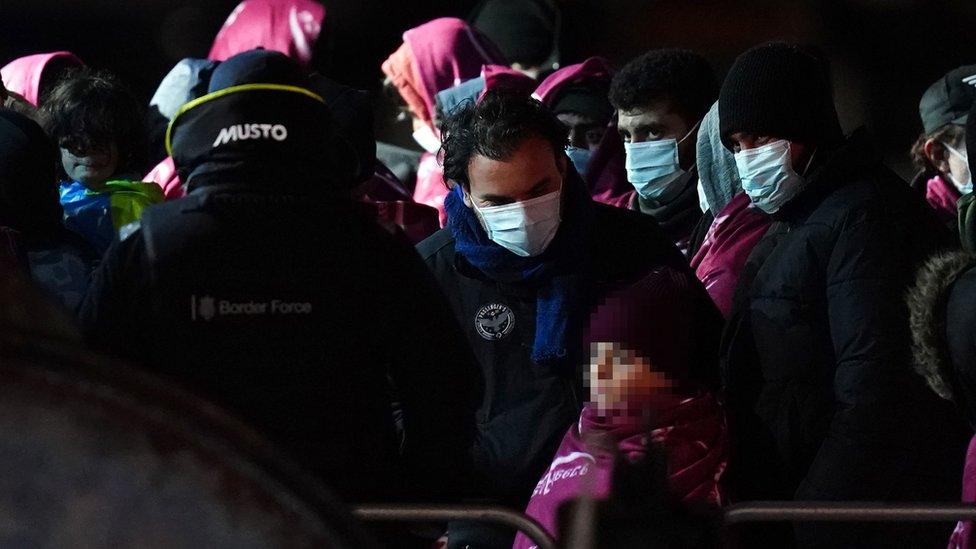
Kent County Council cannot take all the unaccompanied asylum-seeking children, its leader said
KCC leader Roger Gough said hotels were "not the right solution" and renewed calls on the government to impose a mandatory system to place children permanently with other local authorities around the country.
Currently it is a voluntary system, and no all authorities are on board.
A spokesman for Ofsted said: "We've made our position very clear - hotels are not a sustainable solution for these very vulnerable children. We continue to talk to government about the best way forward."
A Home Office spokesman said: "We take the welfare of unaccompanied asylum-seeking children extremely seriously.
"We are clear that they should not be housed here for any longer than is necessary to secure them a permanent placement with a local authority."

Follow BBC South East on Facebook, external, on Twitter, external, and on Instagram, external. Send your story ideas to southeasttoday@bbc.co.uk
- Published12 November 2021
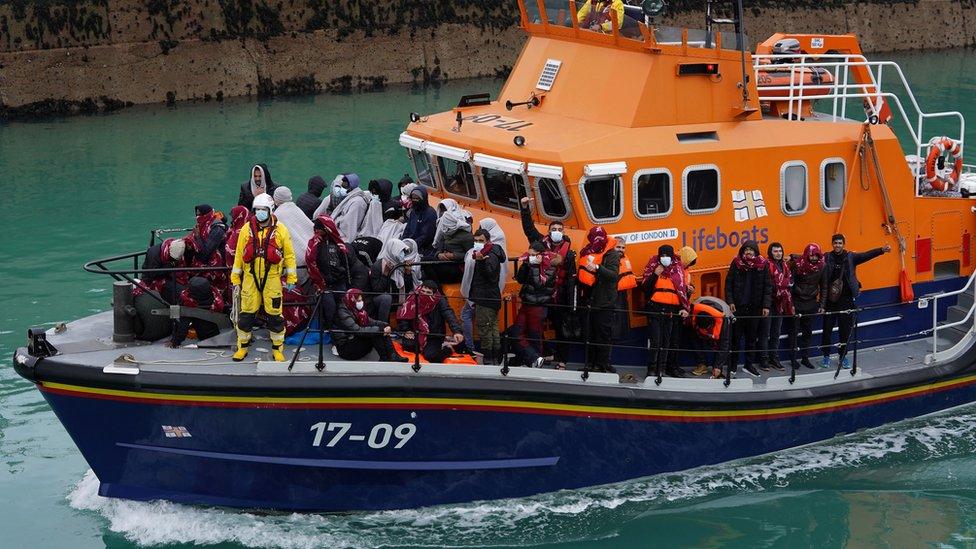
- Published18 October 2021
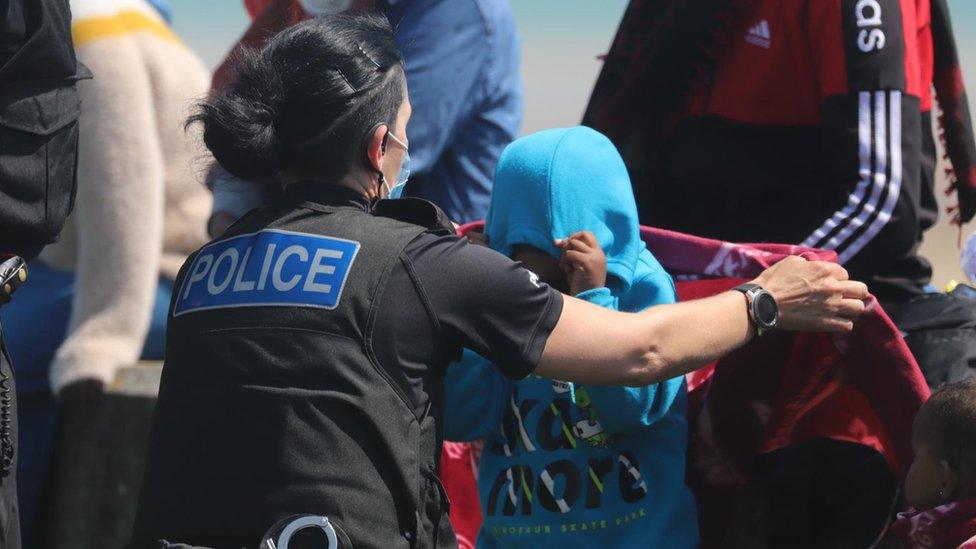
- Published13 December 2023
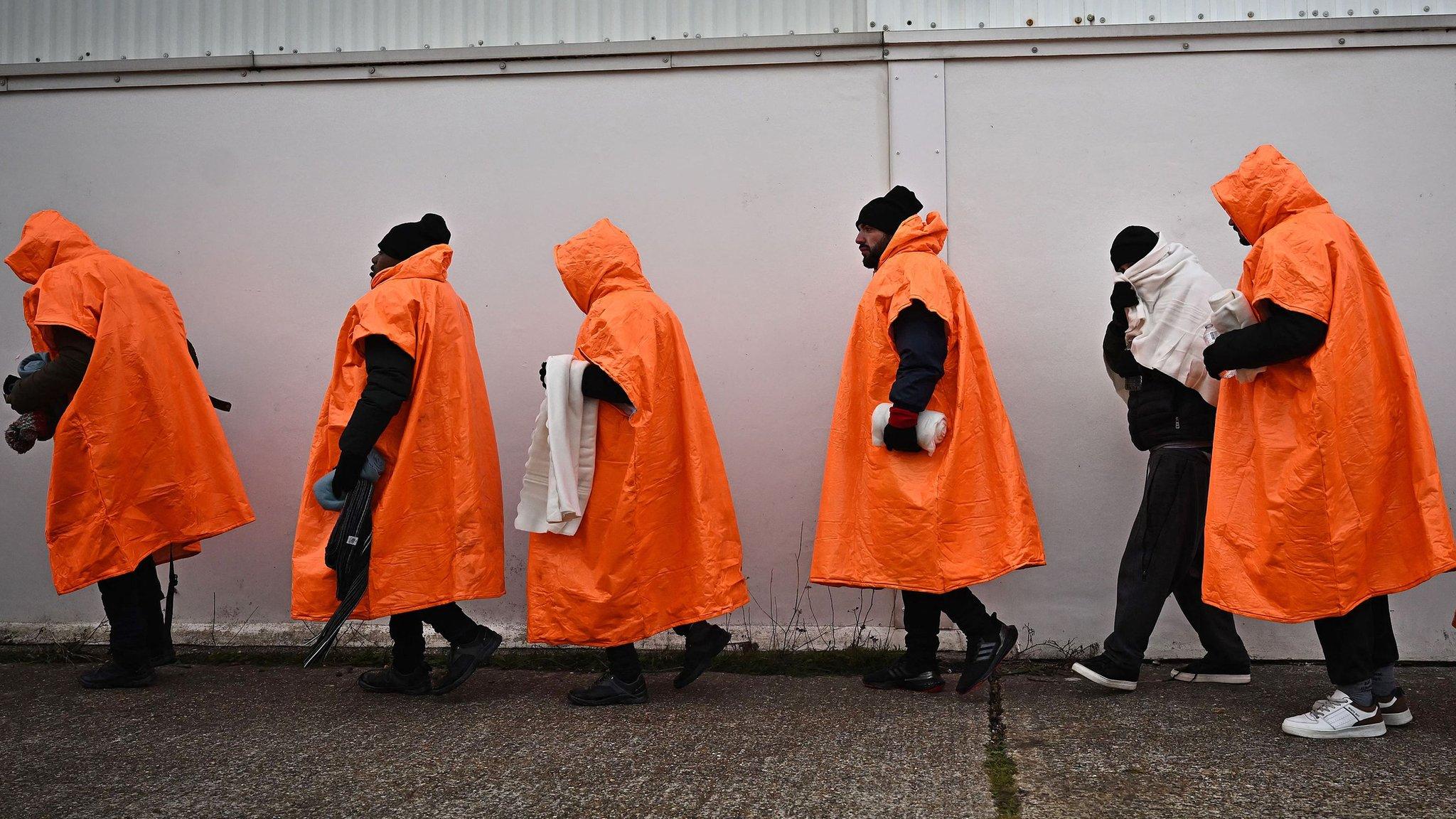
- Published4 November 2021
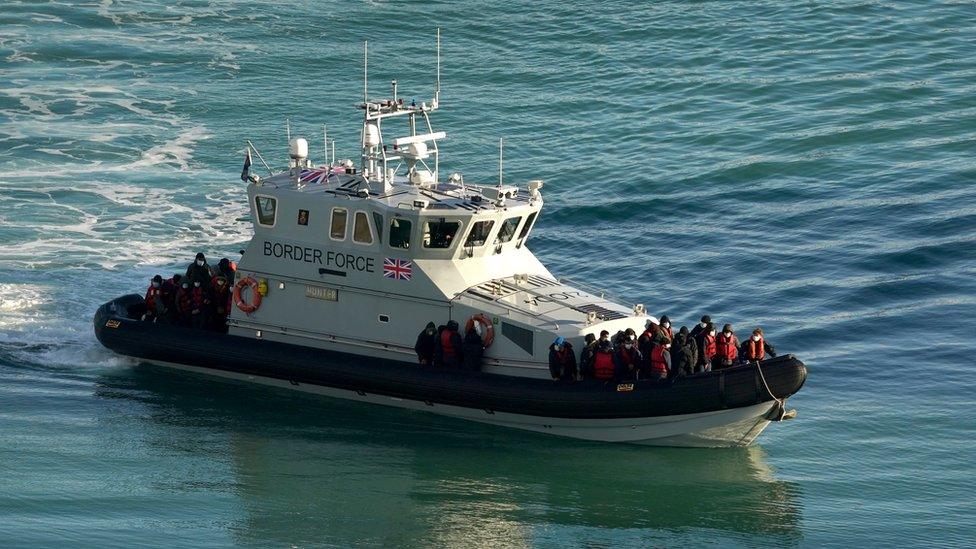
- Published24 August 2021
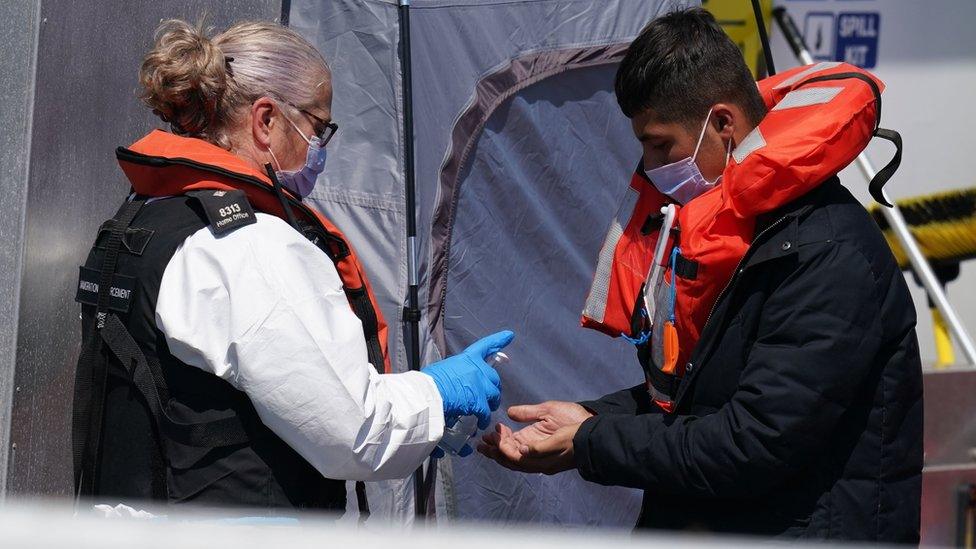
- Published21 July 2021
